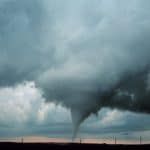The oversight imperative
By Fissile Materials Working Group | August 30, 2012
The prevention of nuclear terrorism, one of the foremost international security threats that we face today, relies on separate national regulations with little oversight. There are few international checks and balances on the physical protection of the treacherous material, which could be used to create nuclear devices by terrorists, aside from bilateral agreements and individual treaties formed at the will of individual states. This lack of binding guidelines and international oversight of nuclear security is inadequate for today’s nuclear risks. Rhetoric from the 2012 Nuclear Security Summit in Seoul is laden with expressions of hope that the International Atomic Energy Agency (IAEA) will assume a larger role in nuclear security. With the summit process likely ending after 2014, there is an opportunity for the IAEA to take over as the key driver of improvements to international nuclear security. Optimistic expressions of hope and even opportunity aside, the future of the IAEA heavily depends on political dynamics, questions of funding, and member states’ initiative.
Current operations. Before the 2002 establishment of the Office of Nuclear Security, the IAEA had minimal tools for addressing nuclear security. Trevor Findlay, a senior fellow at the Centre for International Governance Innovation in Canada, details current advances in his report, including the inaugural nuclear security plan, which was the agency’s first comprehensive program to combat nuclear terrorism. In addition, the IAEA puts out its own guidelines, which are useful for creating a common global norm, but are nonbinding. Many nations have also signed up for and received International Physical Protection Advisory Service missions, in which IAEA experts review security measures at selected sites. Further, the Convention on the Physical Protection of Nuclear Material — which compels participating states to disclose the safe transport of nuclear material — requires members to designate a national point of contact to the IAEA in the event of a breach. In addition, more security progress was made in 2005 with an amendment to the convention that binds signatories to the protection of nuclear materials in domestic use, storage, and transport. Unfortunately, many key states, including the United States and China, still have not signed on.
The difficulty in pushing through the 2005 amendment underscores the critical need for member states’ initiative. The IAEA can only assume a stronger role in the prevention of nuclear terrorism if given the proper authority. To that end, Kenneth Brill, former ambassador to the IAEA, told the Bulletin that the first step needs to be for a state or a group of states to take the initiative to create a convention on nuclear security power for the IAEA. The core group of states that chose to pursue such a convention would then draft the document that would bind all of its members to IAEA verification and officially appoint the IAEA executive agent. If no international consensus should come to pass on the mandate, a group of states has the opportunity to voluntarily adopt IAEA guidelines on nuclear security as binding and then request the IAEA verify compliance.
Opportunities. Assuming the IAEA is to be able to ensure implementation of binding guidelines, several key areas still need to be addressed. A large part of the transition to a greater role depends on monetary resources. AKS Consulting’s Andrew Semmel indicated in an interview with the Bulletin that the budget plays a crucial role as to whether or not the IAEA even has the capability to adequately ensure nuclear security safeguards, with or without a mandate. Internal changes at the IAEA are also important — like reprioritizing the budget so that the Office of Nuclear Security receives funding from the regular budget, which is more sustainable than voluntary contributions. The IAEA should also look at new funding alternatives, including charging fees. Head of the Office of Nuclear Security Khammar Mrabit also recently indicated that more funding must be contributed to meet the high volume of demand from states for facilities protection. At the 2012 summit in Seoul, 23 states pledged to provide support to the IAEA’s Nuclear Security Fund — up from six in 2010. This is an encouraging commitment that will hopefully be implemented and persuade other members to increase contributions to the IAEA’s nuclear security efforts.
Altering current IAEA operational structures to meet the needs of a governing role would be necessary, but the changes would not be drastic. For example, ongoing International Physical Protection Advisory Service missions would still go forward, but these reviews would be bound by international verification security standards and would be mandatory as opposed to per request. Should the Nuclear Security Summit process end in 2014 and the task for organizing similar fora — perhaps at a ministerial level — fall to the IAEA, the secretariat could act as the arbiter of a summit-type convention and devote full-time efforts toward its effective planning and toward implementing its outcomes.
Most importantly, preventing increased politicization between nuclear weapons states and non-nuclear weapons states must be a top priority. The summit process has been able to steer clear of some of the traditional disputes that plague multilateral nuclear diplomacy in part because it is a global threat. But this cannot be taken for granted. Ensuring that a state’s nuclear weapons materials and technologies are safe and secure can be tricky, arousing deep suspicions and antipathies in states that prize their own sovereignty — or privacy — above all else.
Benefits to all parties. Much of the resistance to granting the IAEA a larger role in nuclear security governance is from just such states — those that believe nuclear protective and security should remain under the control of national governments. Findlay suggests that sovereignty and confidentiality is a barrier that is difficult to push past due to government and corporate interests within states. To address this, the IAEA has proved that it can be trusted with maintaining operational secrets through advisory and assessment teams. These missions have also helped the IAEA establish legitimacy and build relationships with actors in the state both at the policy and technical level. In addition, having an international check in place does not mean a state’s ability to protect secrets critical to its own national security would be diminished.
The multilateral nature of the IAEA is not a liability but an asset. Without verifiable international standards, there will continue to be major inconsistencies among states’ nuclear security standards. Semmel argues that, in the absence of strict international standards, terrorist groups might simply pinpoint facilities with the weakest security — whether it is a university research center, government facility, or hospital. A nuclear terrorist attack anywhere would have a major impact on all nations; that’s why mandatory baseline security standards would benefit all states. The IAEA is the only existing organization that is capable of ensuring all states are living up to the highest standards of protection.
Willpower. None of these changes can be made without an initial push by key states to develop nuclear security governance and a more robust role for the IAEA. Dialogue among states, as well as reaching out to members with smaller or developing nuclear capabilities, is critical. Despite the foreseeable difficulties, the danger of nuclear terrorism demands that the international community do all it can to ensure a secure future. Enhancing the role of the IAEA on nuclear security is the most important step in that direction.
Editor’s Note: This column was written by Teresa Chan, a member of the Fissile Materials Working Group. Chan is the nuclear nonproliferation intern at the Connect U.S. Fund and a senior at the University of Oregon, where she studies public policy and biology.
Together, we make the world safer.
The Bulletin elevates expert voices above the noise. But as an independent nonprofit organization, our operations depend on the support of readers like you. Help us continue to deliver quality journalism that holds leaders accountable. Your support of our work at any level is important. In return, we promise our coverage will be understandable, influential, vigilant, solution-oriented, and fair-minded. Together we can make a difference.
Topics: Columnists















